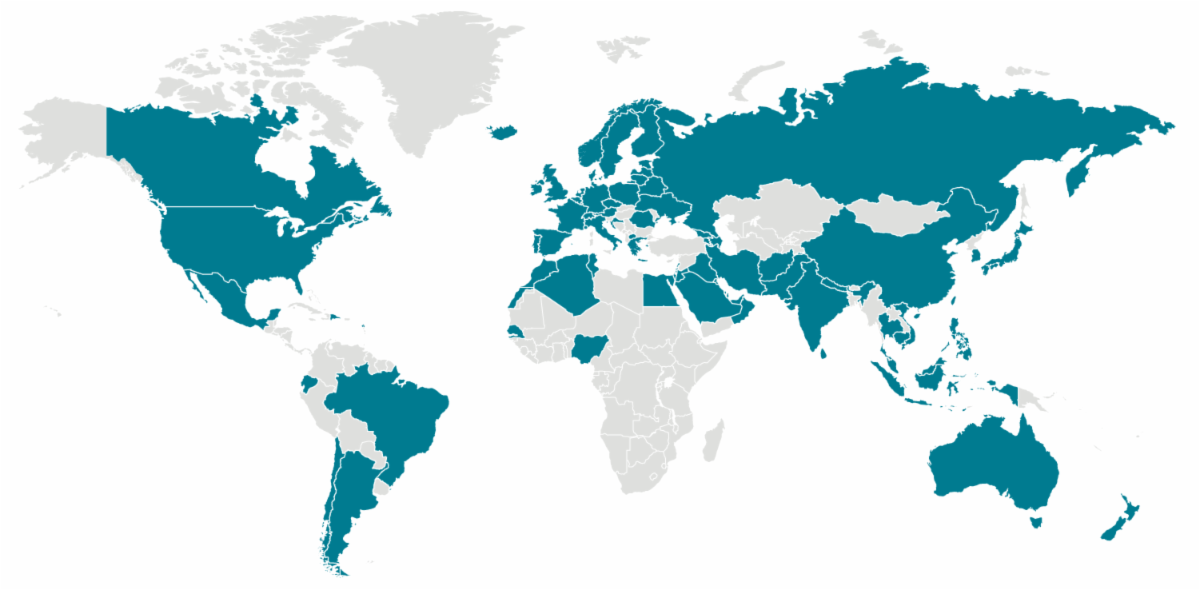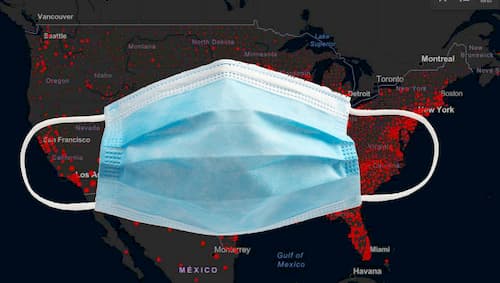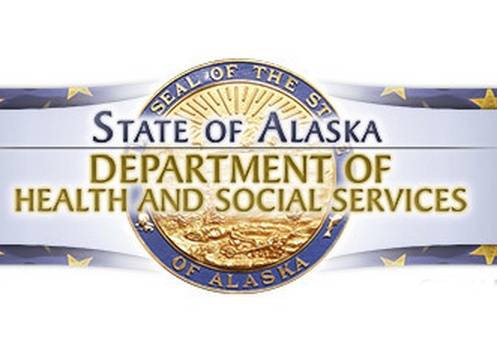Dear Friends and Neighbors,
 The novel coronavirus that first appeared in China in 2019 is now spreading across the United States. I have heard from many people who are worried about the possibility of COVID-19 spreading in Alaska and wanted to provide you with the best information I could on the coronavirus. My office is monitoring all developments and we will continue to provide information as we receive it. I often post updates on my Senate Facebook page, so you can get more information there.
The novel coronavirus that first appeared in China in 2019 is now spreading across the United States. I have heard from many people who are worried about the possibility of COVID-19 spreading in Alaska and wanted to provide you with the best information I could on the coronavirus. My office is monitoring all developments and we will continue to provide information as we receive it. I often post updates on my Senate Facebook page, so you can get more information there.Recent Centers for Disease Control (CDC) reports indicate there are no reported cases of coronavirus in the State of Alaska but advise that there is a risk of “limited community transmission.” To date, there have been over 100,000 reported cases of coronavirus with more than 3,000 associated deaths. (COVID-19 Dashboard) The CDC projects that based on global circumstances, cases of coronavirus will likely become a pandemic. The CDC has recommended that Americans be prepared for significant disruptions.
 |
|
As of Wednesday afternoon the CDC is reporting cases of the novel coronavirus in 77 countries and 158 in the United States.
|
What is the Novel Coronavirus?
COVID-19 is the infectious disease caused by the most recently discovered coronavirus called severe acute respiratory syndrome coronavirus 2, or SARS-CoV-2. Coronaviruses are a large family of viruses which may cause illness in animals or humans. In humans, several coronaviruses are known to cause respiratory infections ranging from the common cold to more severe diseases such as Middle East Respiratory Syndrome (MERS) and Severe Acute Respiratory Syndrome (SARS).
 |
Symptoms
According to the World Health Organization, the most common symptoms of COVID-19 are fever, tiredness, and dry cough. Some people have also reported aches and pains, nasal congestion, runny nose, sore throat or diarrhea. However, many people with COVID-19 experience only mild symptoms.
Mild Symptoms
- Fever (100.4F or higher)
- Sore Throat
- Cough
- Shortness of breath and difficulty breathing
Severe Symptoms
- Pneumonia
- Severe Acute Respiratory Syndrome
- Kidney Failure
- Death
The “incubation period” is the time between catching the virus and beginning to have symptoms of the disease which for COVID-19 is estimated to range from 1-14 days.
 |
How is COVID-19 Transmitted?
People can catch COVID-19 from others who have the virus. The main way the disease spreads is through respiratory droplets expelled by someone who is coughing or sneezing. The risk of catching COVID-19 from someone with no symptoms at all is low. However, many people with COVID-19 experience only mild symptoms. It is therefore possible to catch COVID-19 from someone who has, for example, just a mild cough and does not feel ill. The World Health Organization is assessing ongoing research on the period of transmission of COVID-19 and will continue to share updated findings. You can visit their site HERE.
It is not certain how long the virus that causes COVID-19 survives on surfaces, but it seems to behave like other coronaviruses. Studies suggest that coronaviruses may persist on surfaces for a few hours or up to several days. This may vary under different conditions such as the type of surface, temperature or humidity.
 |
How Is COVID-19 Different From The flu?
Influenza “the flu” and COVID-19, the illness caused by the new coronavirus, are respiratory illnesses. Both have similar symptoms. Both are contagious. Both can be deadly. As of now, there are no unique clinical signatures that distinguish COVID-19 from influenza. Although the symptoms of COVID-19 and the flu can look similar, the two illnesses are caused by different viruses.
While there is currently no vaccine for COVID-19 The seasonal flu is still circulating throughout Alaska and it is not too late for people to get a flu vaccine. Getting an annual flu vaccine can protect against influenza. Even if you do get the flu, it will likely be a milder case and you would be at lower risk for hospitalization with the vaccine. According to the Alaska Department of Health and Social Services, influenza currently poses a far greater health risk to Alaskans than COVID-19.
Who is at risk?
People of all ages can be infected by COVID-19. Elderly people, and people with pre-existing medical conditions such as asthma, diabetes, heart disease appear to be more vulnerable to becoming severely ill with the virus.
Protecting Yourself and Others
In any case, if you have fever, cough and difficulty breathing seek medical care early to reduce the risk of developing a more severe infection and be sure to share your recent travel history with your health care provider.
- Wash your hands frequently for at least 20 seconds. Washing your hands with soap and water or using alcohol-based hand rub kills viruses that may be on your hands.
- Maintain social distancing. Maintain at least 6 feet distance between yourself and anyone who is coughing or sneezing.
- Avoid touching eyes, nose and mouth. Your hands touch many surfaces and can pick up viruses. Once contaminated, hands can transfer the virus to your eyes, nose or mouth. From there, the virus can enter your body and can make you sick.
- Make sure you, and the people around you, follow good respiratory hygiene. This means covering your mouth and nose with your bent elbow or tissue when you cough or sneeze. Then dispose of the used tissue immediately.
- Stay home if you feel unwell. If you have a fever, cough and difficulty breathing, seek medical attention and call in advance. Follow the directions of your local health authority.
Letter to Governor Dunleavy
Representative Zack Fields and I sent a letter to the Governor urging him to issue an Executive Order waiving health insurance fees for Alaskans seeking to be tested for the coronavirus. We’ve heard many stories across the country about people who went to get a simple coronavirus test and were charged thousands of dollars. It is critical to ensure that public testing is available to all Alaskans and this is a recommendation by public health experts to help ensure our safety.
 |
Helpful Links
Local Medical Facilities
If you are experiencing flu like symptoms you should get checked out. If you believe you may have COVID-19, it is suggested that you contact the hospital or medical clinic BEFORE you go there. Below are some medical facilities in our community.
Alaska Veterans Administration
1201 North Muldoon Road
Anchorage, Alaska 99504
Phone: (907) 257-4700
Providence ExpressCare – Tikahtnu
1118 North Muldoon Road
Anchorage, Alaska 99504
Patients First Medical Clinic
6307 Debarr Road Suite C,
Anchorage, Alaska 99504
Phone: (907) 333-7425
Urgent Care Medical Clinic
5437 E Northern Lights Blvd #1,
Anchorage, Alaska 99508
Phone: (907) 333-8561
Vera Whole Health – (For Anchorage Municipal Employees)
1450 Muldoon Rd, Suite 100
Anchorage, Alaska 99504
Phone: (907) 313-7550
Mountain View Urgent Care
3521 Mountain View Drive
Anchorage, Alaska 99508
Phone: (907) 868-1105
Medical Park Family Care
2211 E Northern Lights Blvd,
Anchorage, Alaska 99508
Phone: (907) 279-8486
Emergency Room
Alaska Regional Hospital
2801 Debarr Road,
Anchorage, Alaska 99508
Phone: (907) 276-1131
Alaska Native Medical Center
4315 Diplomacy Drive
Anchorage, Alaska 99508
Phone: (907) 563-2662
Providence Medical Center
3200 Providence Drive
Anchorage, Alaska 99508
Phone: (907) 562-2211
Please feel free to reach out to my office for any additional information.
Warmly,










